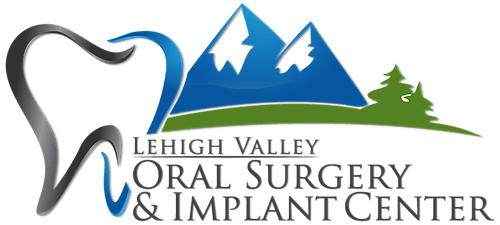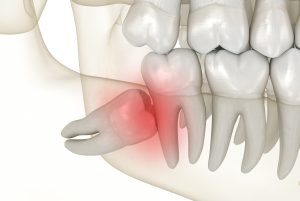Emergency Dentistry for Wisdom Teeth
Handling Wisdom Teeth-Related Emergencies
While wisdom teeth can be beneficial if they emerge properly and align with the rest of your teeth, they often lead to complications that necessitate emergency dentistry services. Understanding the complexities surrounding wisdom teeth is crucial for maintaining excellent oral health and preventing potential dental emergencies.
Our emergency oral surgeon in Bethlehem & Stroudsburg, PA wants patients to understand when wisdom teeth pain is considered an emergency dental situation. See how we’re dedicated to serving patients in Bethlehem & Stroudsburg, PA with the best possible care. Call 484-821-1357 to learn more.
 What Are Wisdom Teeth?
What Are Wisdom Teeth?
Wisdom teeth, scientifically known as third molars, are the last teeth to develop in the back of the mouth. These teeth typically emerge during the late teens or early twenties.
Most people have four wisdom teeth — two in the upper jaw and two in the lower jaw. However, some individuals may have fewer or even none at all. The development of wisdom teeth can vary from person to person, and while some may experience a smooth eruption, others may encounter complications.
Symptoms of Wisdom Teeth Emergencies
Recognizing the signs of wisdom teeth emergencies can help you seek prompt dental care. Look out for the following symptoms:
- Severe tooth pain or sensitivity
- Swollen and tender gums
- Difficulty opening the mouth
- Bad breath or a foul taste in the mouth
- Swelling in the jaw or face
- Headaches or earaches
If you experience these symptoms, contact our Bethlehem & Stroudsburg, PA emergency oral surgeon immediately to prevent further complications. You may need an emergency wisdom tooth removal.
Emergency Situations With Wisdom Teeth
Impacted Wisdom Teeth
When a wisdom tooth doesn’t fully emerge from the gum line or remains trapped in the jawbone, it’s considered impacted. This condition can lead to swelling, pain, and an increased risk of infection.
Pericoronitis
Pericoronitis is the inflammation of the gum tissue surrounding a partially erupted wisdom tooth. It can cause severe pain, difficulty opening the mouth, and an unpleasant taste in the mouth due to the accumulation of debris and bacteria.
Tooth Decay
Wisdom teeth are challenging to clean properly, making them more susceptible to tooth decay. When decay reaches the inner pulp of the tooth, it can cause intense pain and may necessitate emergency dental treatment.
Infections
Infected wisdom teeth can lead to swelling, pain, and even fever. In severe cases, the infection can spread to other parts of the head and neck, requiring immediate attention. Your dentist may recommend an emergency wisdom tooth extraction.
Cysts and Tumors
Impacted wisdom teeth can lead to cysts or tumors in the jawbone, causing pain and potential damage to surrounding teeth and bone.
Wisdom Teeth Emergencies: What to Expect
When facing a dental emergency related to wisdom teeth, it’s natural to feel anxious about the treatment process. Understanding what to expect during an emergency dental visit can help ease your worries.
- Examination and Diagnosis: Dr. Chaudhry will conduct a thorough examination of your mouth, teeth, and jaw to diagnose the issue accurately. This may involve X-rays to get a better view of the wisdom teeth and their position.
- Pain Management: Your oral surgeon may prescribe painkillers or over-the-counter medications to alleviate discomfort.
- Treatment Options: The action will depend on the specific issue with your wisdom teeth. For instance, your oral surgeon may recommend wisdom teeth removal if they’re impacted, while infected teeth may require antibiotics.
- Follow-Up Care: After emergency treatment, your oral surgeon will provide detailed instructions for post-treatment care. Following these guidelines will promote faster healing and prevent complications.
Preventing a Wisdom Tooth Emergency
While not all wisdom teeth problems can be avoided, there are steps you can take to reduce the likelihood of emergencies:
- Regular Dental Check-ups: Visit your dentist regularly for check-ups and X-rays to monitor the development of your wisdom teeth.
- Oral Hygiene: Maintain excellent oral hygiene by brushing and flossing regularly. This will help prevent tooth decay and gum disease.
- Soft Diet: Stick to a soft diet when wisdom teeth erupt to reduce irritation and discomfort.
- Avoiding Smoking: If you smoke, consider quitting, as smoking can delay healing and increase the risk of complications.
- Wisdom Teeth Removal: If your dentist recommends removing your wisdom teeth proactively, seriously consider the option, especially if there’s not enough room for them to emerge correctly.

 What Are Wisdom Teeth?
What Are Wisdom Teeth?